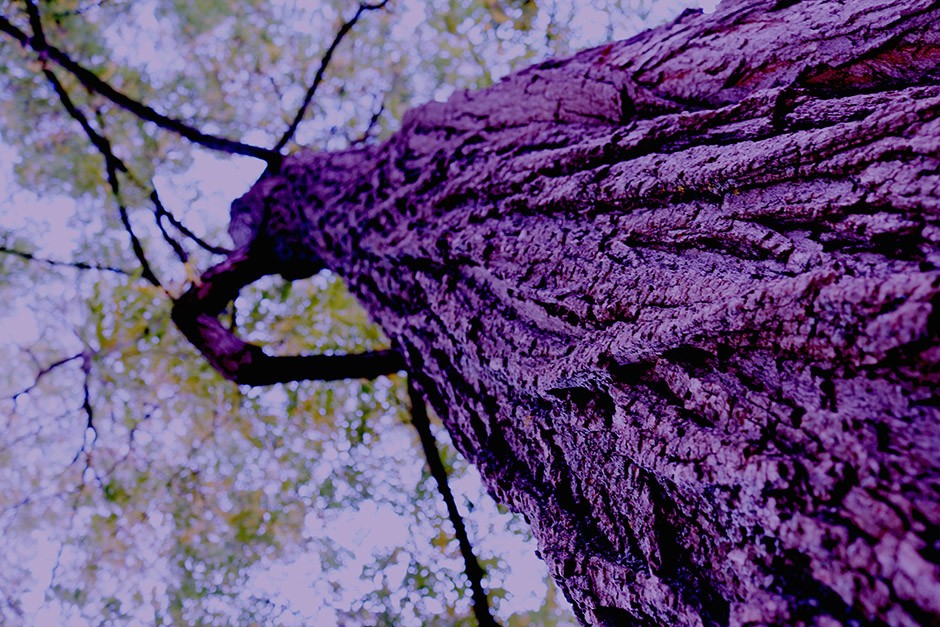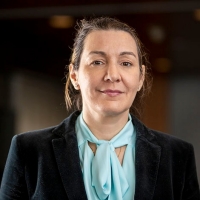Anne-Marie Turcotte is a PhD candidate in the Social and Cultural Analysis Program. She has worked with Nunavimmiut youth for more than 16 years and her doctoral research, which takes a look at youth’s relationship with their built environment, is conducted in collaboration with the Nunavik Youth Houses Association. A Vanier Scholar, she also has an MA in Knowledge Brokering from the Institut national de la recherche scientifique and a BSc in Anthropology from the Université de Montréal. She co-leads the best Concordia scientific podcast project, a working group from the Concordia Ethnography Lab.

“Anyone whose goal is 'something higher' must expect someday to suffer vertigo. What is vertigo? Fear of falling? No, Vertigo is something other than fear of falling. It is the voice of the emptiness below us which tempts and lures us, it is the desire to fall, against which, terrified, we defend ourselves.”
― Milan Kundera, The Unbearable Lightness of Being
On September 28, Joyce Echaquan, a 37-year-old Atikamekw woman from Manawan, died in a Joliette hospital while restrained to her hospital bed. Minutes before her death, Joyce used her cell phone to livestream her last moments on Facebook. Like a letter left on the table for her family, friends and seven children to read after her death, Joyce exposed how, as she lay dying, she was being abused by the health-care workers who were supposed to take care of her.
The first blog entry I originally wrote was about the inexplicable, yet not uncommon (among people I know, anyways) need to feel productive during the pandemic. How we all feel the need to get through these unprecedented times with something to show for it. But when I listened to Joyce’s video, in which we can hear her, for seven grueling minutes, cry for help in her mother tongue…I felt vertigo.
Vertigo has been a recurring theme in my life as I have started writing my thesis and can finally see the finish line. Vertigo is also what I felt during my last fieldwork trip in Nunavik where, at the end of each day, I had to lie down on the floor, my shoulder pressed against the hard surface to feel like I would not fall.
Every day, people confided in me stories of pain and violence that were very difficult to listen to. I would find it so hard to listen to these stories, yet knew people were sparing me the entire truth, because they felt like I couldn’t take it. I could also observe that the people confiding in me never missed an occasion to laugh and see the beauty in their surroundings. These stories were so far from what I had known and experienced as a white French-speaking woman with a cushy lifestyle in a downtown Montreal condo. I felt guilty for being powerless, terrified and dizzy.
At first, I was politely ignored. People had more important things to do than to participate in my research activities. Yet, it soon became obvious to me that I was not being ignored but observed. Children started to make fun of me and my clumsiness, especially when it comes to cultural codes which, even after spending more than 15 years working in Nunavik, I still struggle with. Women started to ask me questions. Why was I single? No children? How come? Although I felt like a curiosity, this interest brought me comfort...which later made me feel very selfish.
As I developed closer relationships with some of the people I was working with, they started confiding in me. It always started with a question that, at first glance, appeared banal. Had I ever gone to a hockey game? My interlocutor would then proceed to tell me a story about their experience at a hockey game which ended in violence, betrayal and pain. As they could see the terrified look on my face, they would just move on to another subject. These stories came drop by drop. Each time, it felt like the opening of floodgates. When, after a month of fieldwork, haunted by a whirling feeling of anxiety, I changed my plane ticket to come home early, people asked me: Why? Wasn’t I happy here? Had they not made me feel welcome? I felt inconsiderate, inadequate and weak.
I believe I feel vertigo because these stories and now Joyce’s story echo in my mind. They will do so until I welcome them. As a collective, we need to acknowledge systemic racism and strive for higher goals. We need to take action toward healing and change. Welcoming challenging stories is not an easy task, but stories are teachings. Stories are teachings that can only echo until they meet welcoming homes to rest.
As I continue my research, I am more than ever inhabited by the desire to understand. But how can I understand something that is so far from my experience? More importantly, how will I be able to translate this understanding and convey it to others? I can only hang on to the belief that if I embrace my experience and the ones shared by others, these experiences will resonate until part of myself grasps what can only be a partial understanding of very complex human experiences.
About the author


